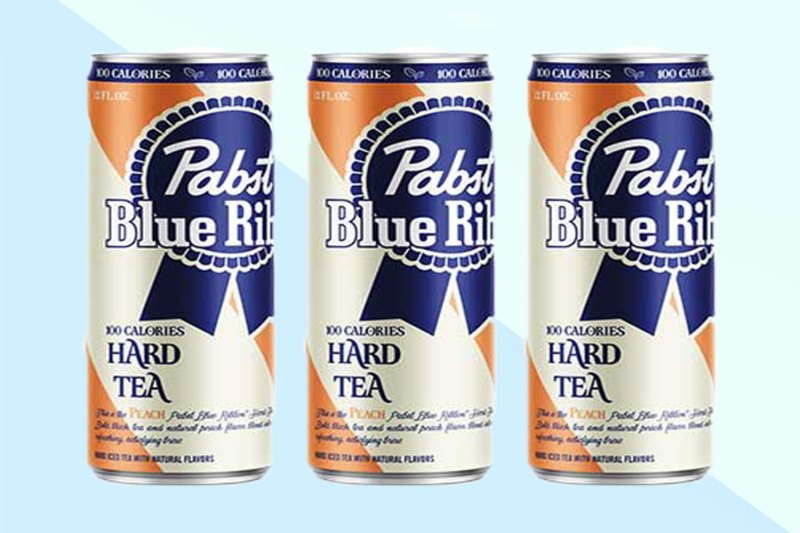
When it comes to drink trends, it’s tempting to ask the question: Why didn’t I think of that?
One can add alcohol to just about anything, making the number of options for what could be popular next practically uncountable. In the past few years alone, we’ve seen booze thrown in everything from kombucha to soda. Presently, we’re swimming in a veritable sea of hard seltzer. Which begs another question: What’s next?
Hard tea is one of the latest products to ride the conveyer belt out of Big Alcohol headquarters. Breweries like Blue Point in New York and 10 Barrel in Oregon are giving it a go, hoping to cash in on wherever it is our collective palate is headed next. And perhaps it’s no surprise, given that the two are owned by AB-InBev and able to operate a little differently than most. Backed by more cash and stacked marketing teams, such labels can afford to explore such waters, even if they turn out to be choppy.
“In typical Blue Point fashion, while everyone is rushing to innovate within the seltzer space, we’ve been busy looking towards what’s next,” says Carrie Shafir, general manager at Blue Point. “Our hard sparkling teas are for the consumer who wants a little more than what a hard seltzer is giving them, without sacrificing on the ‘better-for-you’ qualities.”
The brewery’s newest line is called LIIT, as in Long Island Ice Tea (not the term lit, which seems applicable as well). Some serious 90s motifs are being leveraged through the project, as the heavy use of neon and geometric patterns suggest. Keeping things afternoon-friendly, the offerings are a session-able 5% ABV.
It could prove to be a savvy move, bringing a relatively new concept into the still-trending wellness movement. It’s not an entirely new one, as brands like Twisted Tea suggest, having launched all the way back in the year 2000, adding booze to tea is not exactly novel. However, with so many options now it does seem to be reemerging as an alternative within a crowded field (Twisted experience almost 20% growth from 2018 to 2019, as Beverage Industry reports).
A couple of factors just may propel the hard tea category towards newfound fame. For starters, the pandemic, which has us all — or at least the majority of us — drinking more than before. We’re slightly less picky because many of our favorite bars and bartenders are no longer up and running. Many of us just want to take the edge off while at home until this is all over, with whatever happens to be around and serviceable. Moreover, many of us are drinking earlier in the day than ever and looking for something a bit lower in ABV, like most hard teas out there.
Another factor is the continuing trend of big breweries and other companies diversifying their drinks portfolios. Large producers are dabbling in flavored malt beverages and finding a fair bit of success. Just this summer, Pabst Blue Ribbon released its own line of hard tea. One of the main selling points seems to be the slightness of it all, coming in at 100 calories and just three grams of sugar. And they’re coming out in zero-fuss formats like cans and even pouches.
What may lift hard tea as well is the fact that it’s generally a stimulant. Like coffee, it can energize and put some pep in your step. And, like coffee, there are countless kinds of tea and various means of preparation. Granted, the introduction of the depressant otherwise known as alcohol almost entirely cancels that out, but that’s a detail that many are willing to overlook. Just ask Red Bull & Vodka and its many, many years of fame.
What’ll be most interesting is to see whether the craft sector takes this on. If hard tea proves marketable, smaller operations may give it a go. And this could open the door to greater experimentation, better ingredients (more than simply “natural flavoring”), and even more in the way of tea-driven canned cocktails. Who knows, with fall approaching, we may even look to warm tea and booze, a mostly nonexistent category within the pre-made drinks sector.


